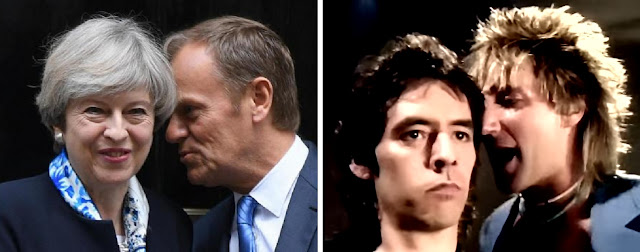Two things: energy meters and me.
A succession of energy suppliers has been pestering us for years to have a smart meter. We’ve held out this long because we don’t see the point. It’s for their benefit, not ours. The energy suppliers are paid to fit them, and meters don’t save you any money if you don’t use energy unnecessarily.
But we don’t think it will be all that long until they become compulsory, and as EDF were offering us a fixed rate tariff that cut £150 off the annual bill provided we had a smart meter, it seemed the right time to do it. We checked their calculations and signed up two months ago, made an appointment for the meter installation, and got the lower rate immediately.
The installer couldn’t do it. First of all, there is not enough space on the electricity supply base board. Secondly, because the gas meter is in the garage at the other side of a double brick wall four yards from the electricity meter in the house, the signal strength would probably be too weak for the two to communicate. He took some photographs and said that EDF would be in touch about what happens next.
They weren’t. All we had was emails saying we must have a smart meter to remain on the fixed tariff. So I phoned them. It seems we continue to wait. Apparently, they cannot alter the tariff while the matter remains open.
I estimate it needs at least £500 of work to resolve the problem with the electricity base board. I hope they don’t say it is our responsibility. And that would not solve the issue with the gas meter anyway, so we would still have to submit manual readings.
Smart meter roll out in the U.K. is a farce. It was all supposed to be finished five years ago. The mistake was to give the energy suppliers their way to fit them piecemeal, rather than have the national power grid install whole areas at a time. Private industry knows best, of course! We all pay for the inefficiency through increased bills, while the energy suppliers rake in the payments to give to shareholders.
I am not so smart either. First of all I had another fit and a night in hospital. It was two days after flu and covid jabs, and I also got the fine balance of hydration, nutrition, temperature, and tiredness wrong that day, but whether they had anything to do with it, I don’t know.
I am also struggling more generally. In addition to the reading difficulties written about previously, the pills I take to poison the tumours also poison me. One side-effect is to deplete blood albumin. It should measure 35-50 g/L. Mine is 21.
Albumin transports all kinds of things around the body, so the consequences are challenging and many. When you have a serious condition you learn more about human biology than ever they managed to teach you at school.
Reading with text-to-speech is slow, and I feel very tired much of the time. Posting and commenting take a lot of time and effort. I no longer comment as much as I would like, but I read more than I comment. I enjoy your posts, and continue to do what I can.
This is not to seek sympathy, but just to say how things are. I am more interested in your thoughts about smart meters.




















